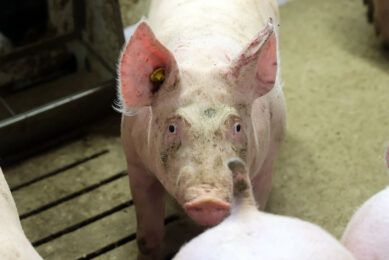IPVS 2010 Vancouver, Canada – What scientific delights can we expect?
The long awaited 21st International Pig Veterinary Society Congress in beautiful Vancouver, Canada is here…(18-21st July). What scientific delights can we expect?
I have been attending the IPVS congresses since the 6th, back in Copenhagen in 1980 and have only missed one in the intervening thirty years. Every time one comes back with a package of new information and updates on some of the older findings. Sometimes they can really change your mind and approach to tackling swine diseases and their control.
©
Over the last two years, we have seen the worldwide control of PCV2 (porcine circovirus type 2) infections with the new range of vaccines. There are still some queries to iron out especially over the effects of PCV2 on breeding herds and gilts in particular, causing mummification and stillbirths. I expect some data on trials here and also the combined vaccination with PCV2 and Mycoplasma hyopneumoniae vaccines. PRRS (porcine reproductive and respiratory syndrome) virus is to the fore, especially as in N. America they suffer from the severe strain of virus. A combined PRRS virus and M. hyopneumoniae vaccine is also on the horizon. Swine influenza – H1N1 is also a hot topic. We all expected the worst last year but really it was fairly mild and the infection appears to be limited by previous H1N1 virus immunity circulating and also vaccines. An update here will be most useful.
©
Last time, at IPVS Durban, S. Africa, there was the opportunity to discuss the hot issue of MRSA (methicillin-resistant Staphylococcus aureus), which was reported to be sweeping across Europe. Subsequent surveys have shown that it is a major problem in a number of countries and the shipping of breeding stock and carrier growing pigs has spread the main sub-types to many more countries. It will be a major discussion point on how to prevent further development and spread of the infection and how some countries are planning to reduce the level/eliminate it in their countries. Netherlands appears to be taking the lead here again.
©
This is timely, as the EU is reviewing their medicine regulations, in particular regarding the use of key antibiotics that caused the problem, so a future control plan could be very helpful to avoid over-heavy regulation. ESBLs (extended-spectrum beta lactamases) do not appear to be on the agenda, and to date have been more of a problem in cattle, but these are the next antibiotic resistance concern that is taking over from MRSA. The ESBL resistance genes are carried in Escherichia coli and may prove easier to transmit to man.
©
Other public health issues regarding salmonella are also on the programme. This will be another hotly disputed area for debate. Recent work in the UK, looking at the phage types of S. Typhimurium that are transmitted to man suggest that as little as 2-3% of the total 10,800 human cases are caused by pig meat consumption. In a recent EU survey, it was put as high as 10-20%. If it is below 10%, then it is hardly worth spending so much on the ‘farm to fork’ approach and focus instead on the critical control point at the slaughter house, to solve the carcase contamination problem. With the banning of gestation stalls in the not too distant future in the EU and the improved welfare that might be associated with group housing, control of salmonella spreading within the breeding herd is going to be even more difficult.
©
So it is with great anticipation that I look forward to attending the IPVS in Vancouver. To meet long-standing friends and colleagues and catch up on their research and experiences is always a great pleasure. Usually, there is enough new information to keep me writing for another 12 months or so. It is my first visit to Vancouver and I am looking forward to experiencing the beauty of the city and its magnificent surrounding countryside. Hopefully, I will have the opportunity to watch a few whales but I think I will try to avoid the grizzly bears.
©
©











